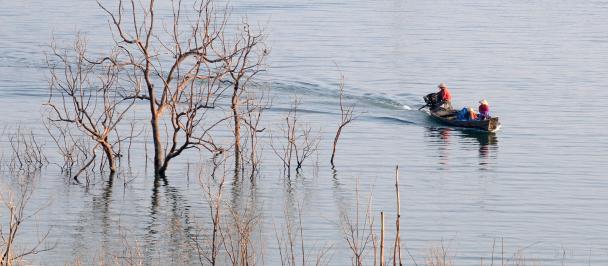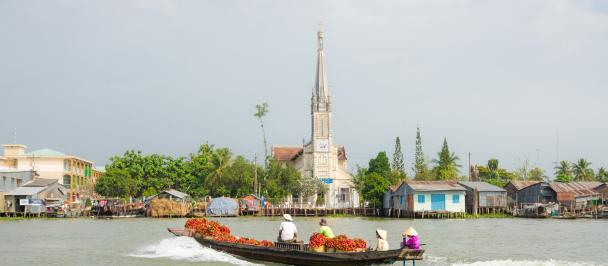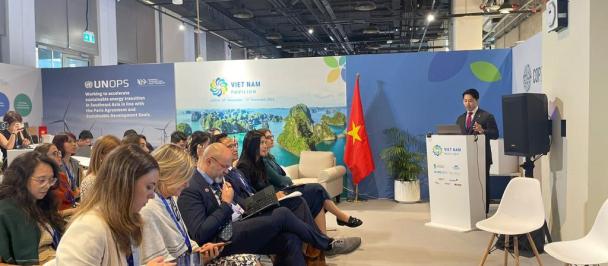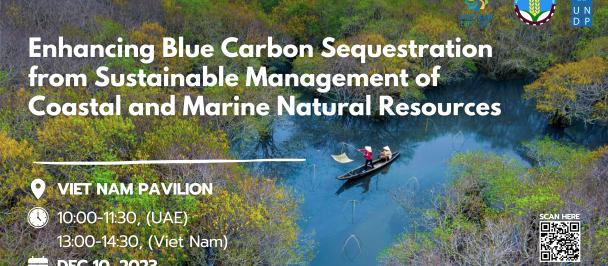High-Level Policy Dialogue on Sustainable Co-Management of Natural Resources in the Context of Climate Change
August 26, 2022
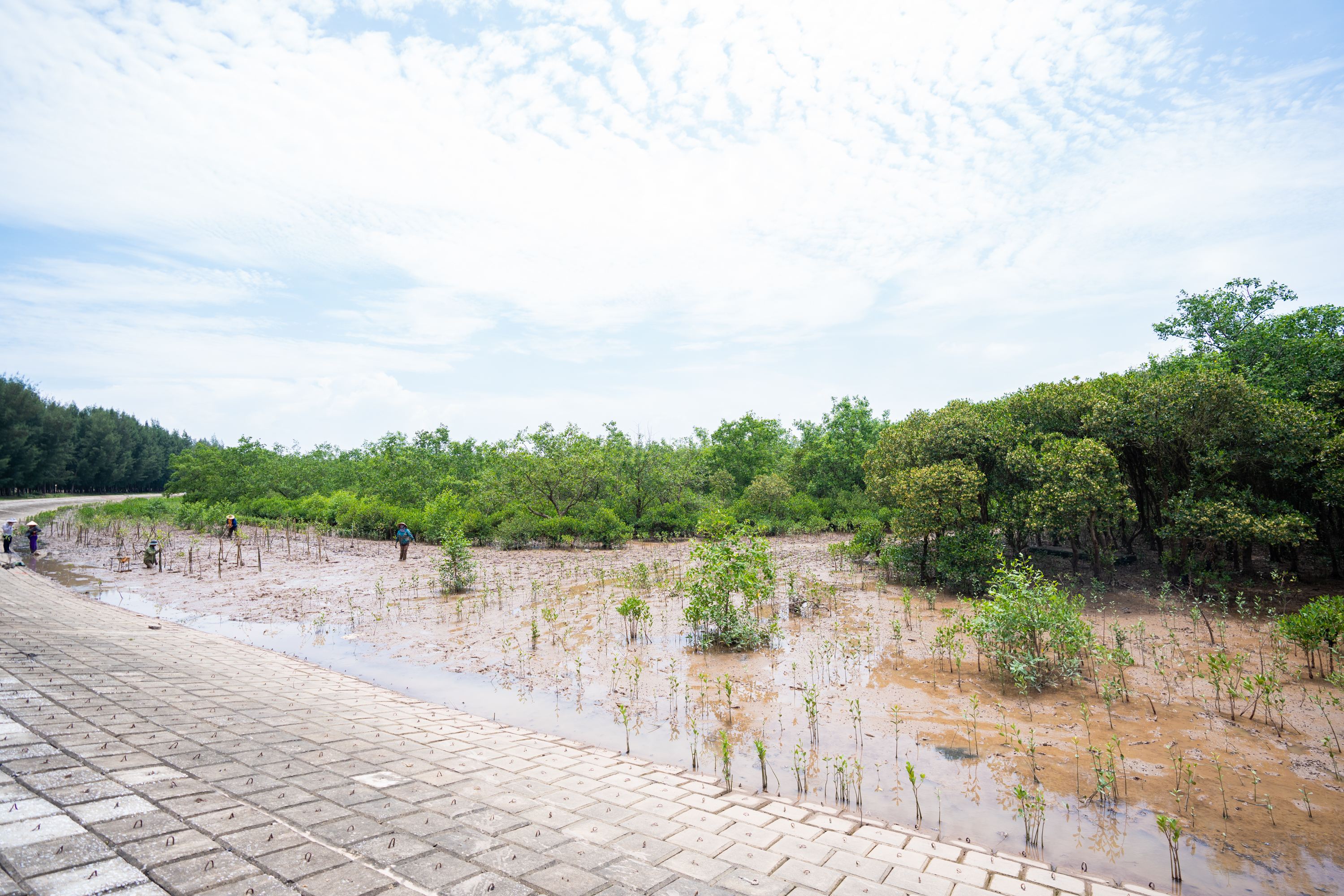
Mangroves are planted in Thanh Hoa Province as one of the effective nature-based solutions to enhance coastal community resilience to climate change and support sustainable livelihoods.
Ha Noi 26 August 2022 – The existing legal system of Viet Nam on land, forestry, fishery and biodiversity resources provide great opportunities to further enhance the empowerment of local communities the models of co-management of natural resources that address the impacts of climate change and the need for more sustainable use of natural resources.
This reflection was highlighted at the High-Level Policy Dialogue: Sustainable Co-Management of Natural Resources in the context of Climate Change, co-hosted by the Ministry of Agriculture and Rural Development (MARD) and the UN Development Programme (UNDP) today. The dialogue focused on emerging opportunities, effective governance of natural resources, and robust regulation and finance as well as key barriers for scaling up and recommendations to enhance implementation of nature-based solutions. The diverse invited speakers shared innovative ideas, good practices, knowledge and experiences from both national and international projects that advance the effective collaborative management ‘co-management’ of natural resources in a more sustainable and climate resilient way.
Participation of all the stakeholders in sustainable management and utilization of natural resources, including water and below-water resources, marine and forest, is essential for achieving the key objectives of the Strategy for Sustainable Agriculture and Rural Development for the 2021 - 2030 period, with a vision to 2050, i.e. developing green, environmentally friendly agriculture, adapting to climate change, reducing rural environmental pollution, and striving to reduce greenhouse gas emissions by 10% compared to 2020.
Addressing the Dialogue, Minister Le Minh Hoan affirmed that natural resources still have the tendency to degrade, while local communities - whose livelihood depends on local natural resources – have limited access to and use of these resources. It is therefore necessary to consider other implementation solutions such as "co-management", "community-based management" to emphasize the important role of the community in monitoring, managing, and sharing natural resource values.
"Collaborative management mechanism has proven significant effectiveness and solidarity of stakeholders through sharing of right, power, responsibilities and benefits of co-management of natural resources," said Mr. Le Minh Hoan, Minister of MARD, in his opening remarks. "Law on Fisheries 18/2017 and the Decree 26/2018 stimulates co-management of fishery resources in order to share the right and responsibility in protection and exploitation. In forest sector, communities widely participate in community-based forest management, in different forms of collaborative management, that have greatly contributed to protecting and developing sustainable forest in Viet Nam".
There is still however space for institutions and policies to further grow the practical and legal space for a more effective and expanded community involvement in co-management. Many potential areas of sustainable management of natural resources are remote locations with high rate of ethnic minorities people and lower income social groups and with limited rights to land and natural resource uses.
“To sustain long-term growth, it is vitally important that Viet Nam follow a trajectory that invests in, sustains, and regenerates the natural capital that people, communities, and the economy depend on,” said UNDP Resident Representative in Viet Nam Caitlin Wiesen. “This is not an endeavor for government alone and will require the full engagement and support from local communities and private sector. Further empowering and strengthening the roles of local communities and private sector in natural resources co-management and benefit sharing and integrating such approaches in development plans and budget processes is essential. This in turn lays the foundation for successful models of resource co-management for sustainable agriculture production and livelihoods, biodiversity conservation, and carbon sequestration, to be effectively scaled.”
The workshop gathered key officials of MARD, Departments of Agriculture and Rural Department from all 63 provinces, and other government entities, stakeholders, and development partners in the in-person and online workshop.
---
For more information, please kindly contact:
Bui My Binh | Senior officer, ICD, MARD
Ph. +84 989096252 | mybinhbui@gmail.com
Nguyen Thi Phuong Dung | Communications Analyst, UNDP Viet Nam
Ph. +84 986508789 | nguyen.thi.phuong.dung@undp.org

 Locations
Locations